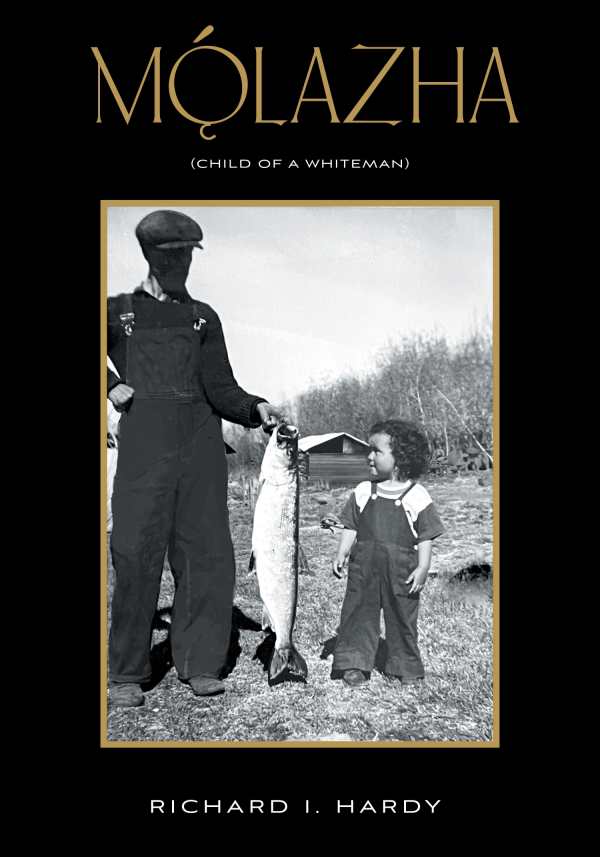
Mǫ́lazha
Child of a Whiteman
Mǫ́lazha is a meticulous survivor’s memoir about growing up Métis and facing generational traumas.
Richard I. Hardy’s candid memoir Mǫ́lazha details his lineage, his Métis childhood in the Northwest Territories, and abuse within a Catholic school.
The book first revisits the Mackenzie River District––once under the purview of the Hudson Bay Company. With its focus there, it discusses Hardy’s First Nations, Scottish, and French ancestors, whose ties to the company involved jobs in the fur trade. It’s an informative regional and personal history, though its steady progression through the generations is also matter-of-fact in tone. Records and evocative photographs somewhat flesh the section out, but significant gaps in what’s known remain, inspiring lengthy conjectures. Nonetheless, related notes set the context for how Hardy’s Métis relatives were regarded, with hints about how Anglican and Catholic tensions contributed to his family’s decisions.
Hardy’s birth and childhood aren’t covered until the book’s second part, in which everyday anecdotes combine with other family members’ fragmented oral histories, resulting in a piquing but meandering depiction of rural life. Via scenes of food scarcity, anticipations of barge deliveries, seasonal tasks, and games with other children under the Northern Lights, Hardy’s difficulties and joys are covered. There are also practical details, such as about melting snow for water use and using wood stoves.
Then, in 1959, Hardy and other Métis children were sent to a school in Inuvik as part of the Canadian government’s plan to consolidate schools in the Northwest Territories. Grollier Hall, a Catholic-run hostel, was marked by cruelties and rapes under the helm of its supervisor. Hardy writes about these difficult events in a lucid, determined manner, expressing hope that such traumas can be recovered from. The supervisor’s viciousness is dealt with in brisk form so that Hardy can focus on tracing his blurred memories with the help of other classmates. Still, unresolved questions about the Catholic Church’s complicity, though thought-provoking, result in discursions.
In the end, it’s the understated, fleeting account of Hardy’s mother that best introduces the key topic of this abuse. She, too, endured punishment at a Catholic school; her experiences were a precursor to Hardy’s own pains. But mentions of the school are surrounded by otherwise warm memories; their own coverage is stark. The book’s final sections, too, dart through the past and the present, mixing summaries of Hardy’s tumultuous adulthood with unfocused introspection.
Reckoning with Canada’s dark periods of abuse, Mǫ́lazha is a meticulous survivor’s memoir about growing up Métis and facing generational traumas.
Reviewed by
Karen Rigby
Disclosure: This article is not an endorsement, but a review. The publisher of this book provided free copies of the book and paid a small fee to have their book reviewed by a professional reviewer. Foreword Reviews and Clarion Reviews make no guarantee that the publisher will receive a positive review. Foreword Magazine, Inc. is disclosing this in accordance with the Federal Trade Commission’s 16 CFR, Part 255.
